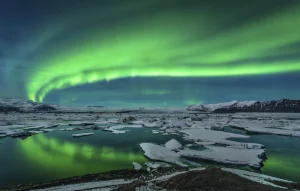UKSA Heads International Charter Space and Major Disasters
24th Apr 2023
The UK Space Agency (UKSA) has been handed the baton for the next six months to lead an organization utilizing satellite data in disaster response. This organization, International Charter Space and Major Disasters (The Charter), was founded by the European Space Agency (ESA) in 2000 and has 17 member agencies and 270 contributing satellites. The Charter works as a “single access point” for accessing Earth Observation satellite data amid disaster. UKSA heads the charter from 24th April 2023, which also coincides with the 49th Board Meeting of the Charter in Edinburgh. Contributing member agencies take turns at leadership, so another cooperating body will begin its leadership when the UKSA’s time is up.
The Charter and how it responds to disaster
Formed on 20th October 2000, ESA, the French Space Agency (CNES), and the Canadian Space Agency (CSA) set out to combine global satellite resources for disaster management. The Charter works 24/7 and can be activated by authorized users from over 80 countries, with the UN as a cooperating body. However, any country can ask an authorized country to activate the Charter on its behalf. Some of the space agencies involved include the Argentine Space Agency, the China National Space Administration (CNSA), the Indian Space Research Organisation (ISRO), and many more.
“Information and maps derived from satellite data sourced via the Charter assists the coordination of resources and expertise for rapid response in major disaster situations, helping civil protection authorities and the international humanitarian community”, the UKSA explains.
Use of the Charter is completely free, and since it was launched, it has been activated over 815 times – the most common being reason for weather-related disasters, such as cyclones, floods, landslides, earthquakes, and oil spills. According to the UKSA, the Charter has grown to an average of 50 activations per year, jumping from 42 per year since 2020.
The UKSA heads the charter
The UKSA joined the Charter in 2005 and will now assume leadership over it for the next six months. The UK contributes satellite imagery through its Disaster Management Constellation (DMC), developed by Surrey Satellite Technology LTD, and high-resolution Vision-1 satellites, operated by Airbus Defence and Space.
The most recent time the UK activated the Charter was in November 2022, during the Scotland floods. The torrential rain hit most of East Scotland, with Aberdeenshire impacted the most. The Charter was activated on 18th November, on behalf of the Scottish Environment Protection Agency.
Satellite imagery from the CSA’s RADARSAT RCM was able to determine the flood’s extent and the water levels over large areas, which catalyzed the issuing of relevant warnings and rescue plans.
The UK Government minister for Scotland, John Lamont, said the Charter is a “fantastic example” of the international community working together to aid natural disaster recovery. “Here in Scotland, we have seen the benefits of this group with the satellite imagery of the flooding in Aberdeenshire last year which helped local agencies deal with the issue”, he said.
Dr. Paul Bate, the Chief Executive of the UKSA, said the agency looks forward to working with fellow members “to drive forward this vital humanitarian service”, according to the press release.
“All too often we hear reports of the devastating and far-reaching consequences of natural disasters on communities across the globe. Satellites play an important role in the response, with Earth observation data used worldwide to map, monitor and mitigate impacts and, ultimately, to save lives,” Dr. Bate said.







Thank you for your comment! It will be visible on the site after moderation.